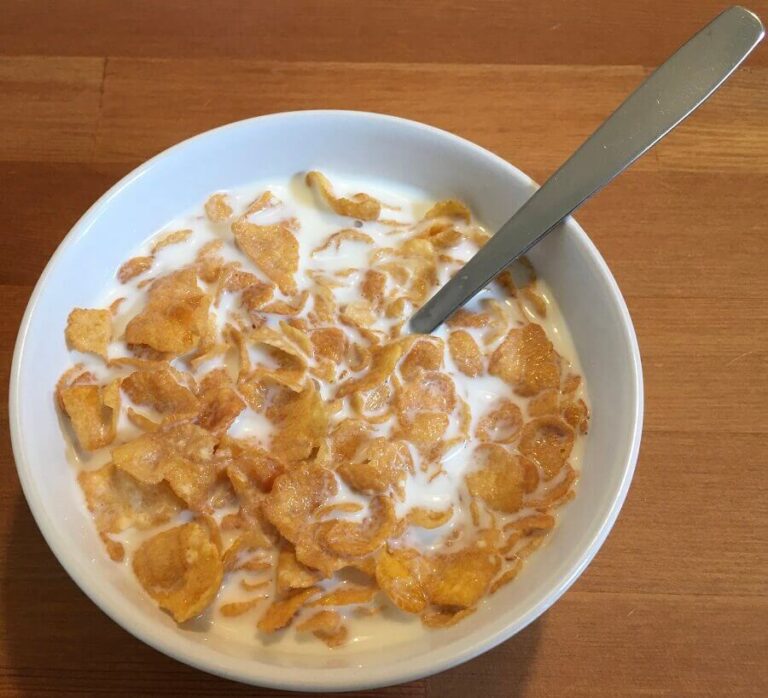The belief that carbohydrates have the ability to cause obesity or disease in the body has been hammered into our minds for the past ten years.
With the hype about the detrimental effects of eating carbohydrates, it is not uncommon for people to worry too much about avoiding this macronutrient.
While it is real, that excess carbohydrates can be bad for the brain and body; Strategies like extreme restriction of them can cause just as damaging results. The key in carbohydrates seems to be both the amount and the amount consumed.
Reading on seems to know what the effects of carbohydrates are on the brain and why they are necessary for our neurons to function properly.
The brain needs carbohydrates to function properly
Carbohydrates are the brain’s main fuel. Although the human brain accounts for only 2 percent of body weight, the brain consumes 20% of its energy from carbohydrates. (1)
The brain requires approximately 130 grams of carbohydrates a day to function optimally. That’s about 40% of the calories consumed in an adult’s daily diet. (2)
Carbohydrates not only help regulate proper blood flow throughout the body but also help the brain to process information.
This is basically because glucose (a product of the digestion of carbohydrates) is the main, if not the only, energy substrate of this organ.
Studies have found that without adequate amounts of glucose in the brain, people exhibit decreased memory and reaction time, as well as an inability to focus on the task. (3.6)
In addition, thanks to new discoveries of neurons specialized in detecting glucose, it is also considered a signaling molecule that informs the brain about the state and energy availability of the entire body.
Even more surprising, it has been confirmed that not only neurons but also other types of nerve cells can detect glucose. These are called glial cells and are found in all regions of the brain. Together, these advances show the importance of glucose in the proper control of the energy balance of our mind and body.
Functions of carbohydrates in the brain
Carbohydrates perform many functions in the brain. Carbohydrates significantly affect mood, learning, behavior, and are also important for mental health.
Its main function is as an energy supply for the brain. Although they can also act as a precursor to the creation of neurotransmitters, which are the communicators of neurons throughout the body.
Two neurotransmitters that require carbohydrates in the diet are serotonin and dopamine. Serotonin is the hormone associated with wellness, and its levels in the brain are affected by the amount of carbohydrates consumed. (6)
Dopamine is necessary for the body to be rewarded with pleasure. It has been seen that many people who have eating disorders or follow restrictive diets are deficient in dopamine and may seek to increase its levels in the brain with other substances such as alcohol or nicotine.
Excessive shopping or gambling can also increase dopamine levels. Adding enough carbohydrates to your diet can decrease the need for these less desirable behaviors.
Why carbohydrates and not protein or fat?
Although the brain uses glucose as its main source of energy, it can also use other metabolites derived from proteins and fats to keep it going.
For example, the brain can use ketone bodies in special situations like fasting , or on the keto diet . While this occurs, ketone bodies are not the most efficient fuel for the brain.
Glucose is most useful because it enters the brain by facilitated diffusion, that is, it enters brain cells through a series of specific transporters that do not work for ketone bodies.
Feeding the brain ketone bodies instead of carbohydrates for long periods of time can impair memory, attention, and alter levels of hormones that regulate important body functions. (5)
Ultimately, brain functions such as thinking, memory, and learning are closely related to glucose levels. Therefore, the efficiency of the brain is directly affected by how it uses this fuel source.
What happens in the brain when you eat low carbohydrates?
When you eat low carbohydrates, your blood glucose levels drop. The decrease in blood glucose is detected by central glucose sensors located in the brain, pancreas, and other peripheral regions of the body. Together these sensors will always try to keep glucose levels stable.
When energy needs are not met through carbohydrates, the initial response involves activation of the autonomic nervous system, inhibition of insulin secretion, and stimulation of the secretion of the hormones glucagon and cortisol .
The net result of this response is to increase available blood glucose levels and, if necessary, utilize glycogen stores .
When these stores are depleted, your body triggers emergency mechanisms and begins to use protein as an energy source. So far everything works more less normal. However, little by little various systems of the brain are altered.
For example, if there is not enough glucose in the brain, neurotransmitters, the brain’s chemical messengers, are not produced, and communication between neurons is disrupted.
Additionally, hypoglycemia, a common complication of diabetes caused by low blood glucose levels, can lead to loss of energy for brain function and is linked to poor attention and cognitive function.
When carbohydrates are bad for the brain
On the other hand, the consumption of large amounts of carbohydrates, whether refined or complex, have also been linked to learning disorders, depression and poor memory.
The excess sugar refined in the blood appears to decrease a chemical the brain known as the derived neurotrophic factor (BDNF).
Without adequate amounts of BDNF, our brains cannot form memories and learning slows. Low levels of BDNF also reduce the body’s ability to protect itself from insulin resistance , leading to type 2 diabetes. It has also been linked to depression and dementia, although more studies are still needed. (4)
Bingeing on excessive amounts of sugar also reduces the brain’s ability to tell you when it is really full, the result is compulsive eating.
When is an excess of carbohydrates? Although this depends on the physical activity and energy that each person uses, the limit would be around 280 – 300 grams of total carbohydrates per day or just 30 grams of refined carbohydrates .
ABSTRACT
Eating low carbohydrates can affect important brain regions related to memory, attention, and cognitive functions.
An excess of carbohydrates, particularly sugars, can cause damage to neurons, although it is not yet known exactly which are the brain networks and functions that are altered.
So both too few carbohydrates, and too much of them can be harmful to the brain. The key is to find the right quantity and quality.







